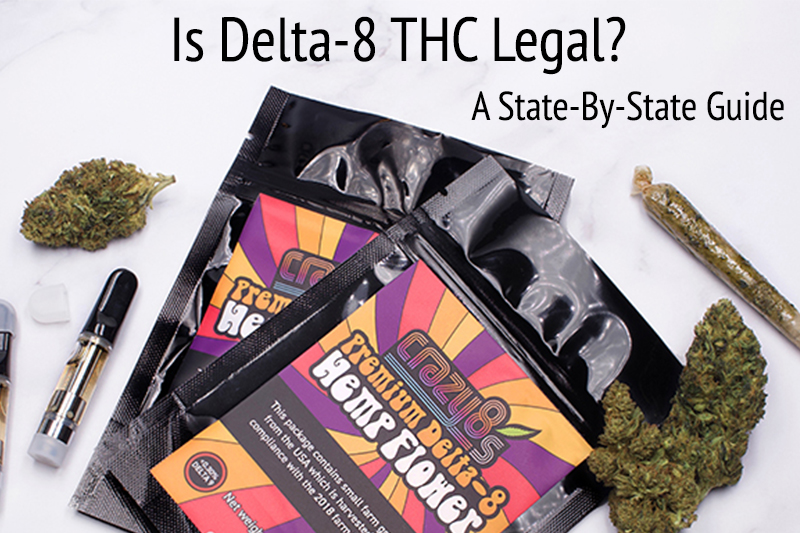Will delta 8 THC get banned in the United States? Some say yes, others say no.
The legal status of delta 8 THC on the federal and state levels creates a lot of confusion. In this article, we discuss the current legality of this cannabinoid in each state, prohibition, and potential restrictions.
We also discuss the progress made at the federal level and what the future holds for this cannabinoid in this country.
Last Update: June 22, 2024
Summary
- Hemp-derived delta 8 THC is legal under the 2018 Farm Bill. But, due to the methods of making this compound, its legality on the federal level is murky.
- Some states have strict regulations on hemp-derived delta 8 THC and ban its sale, possession and consumption. Others restrict its use to adults 21 and over.
- Friendly states: In states like Alabama, Florida, and Illinois, hemp-derived delta 8 THC is legal with varying regulations.
- Gray states: In states like Georgia and Kansas, delta 8 is in a legal gray area.
- Illegal states: States like Alaska, California, Colorado, and Indiana prohibit the sale, use and possession of delta 8 THC.
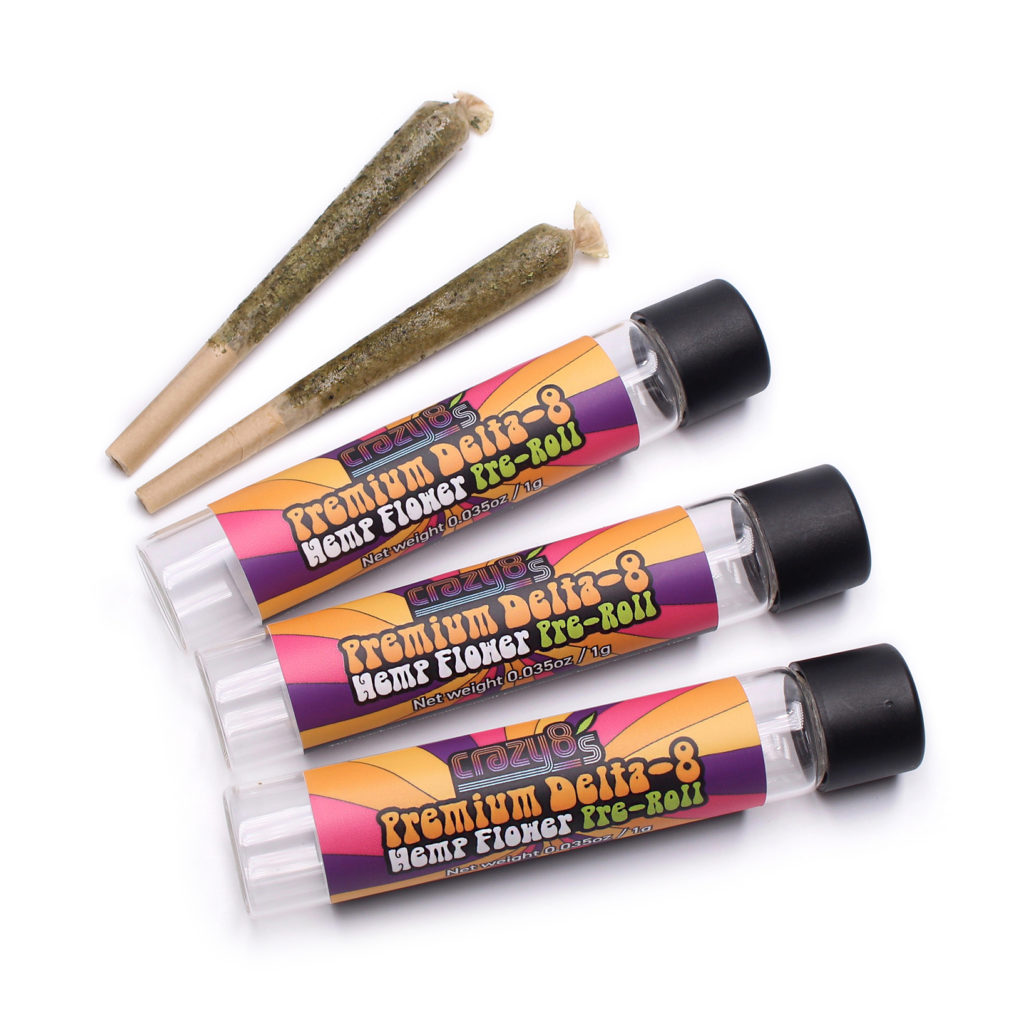
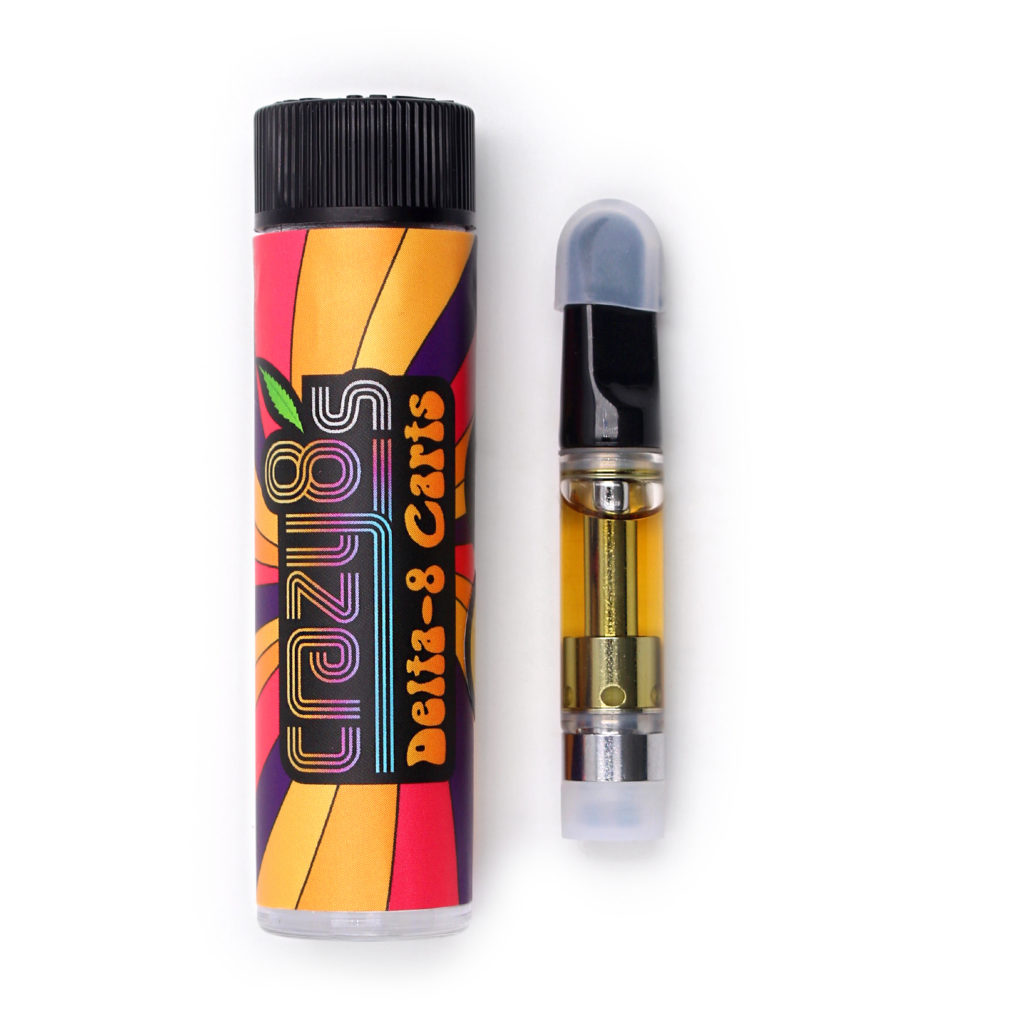
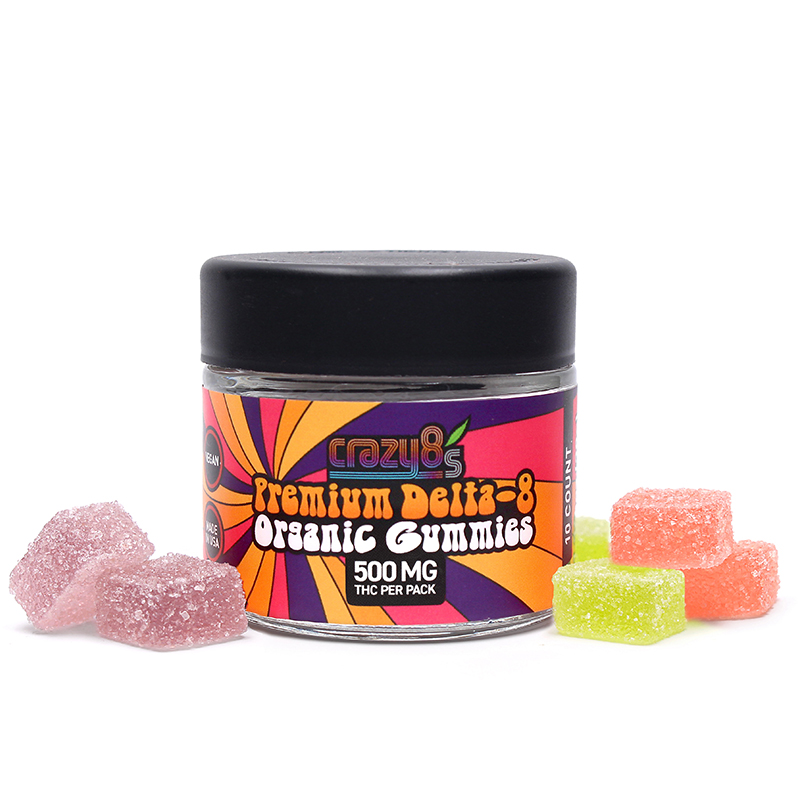
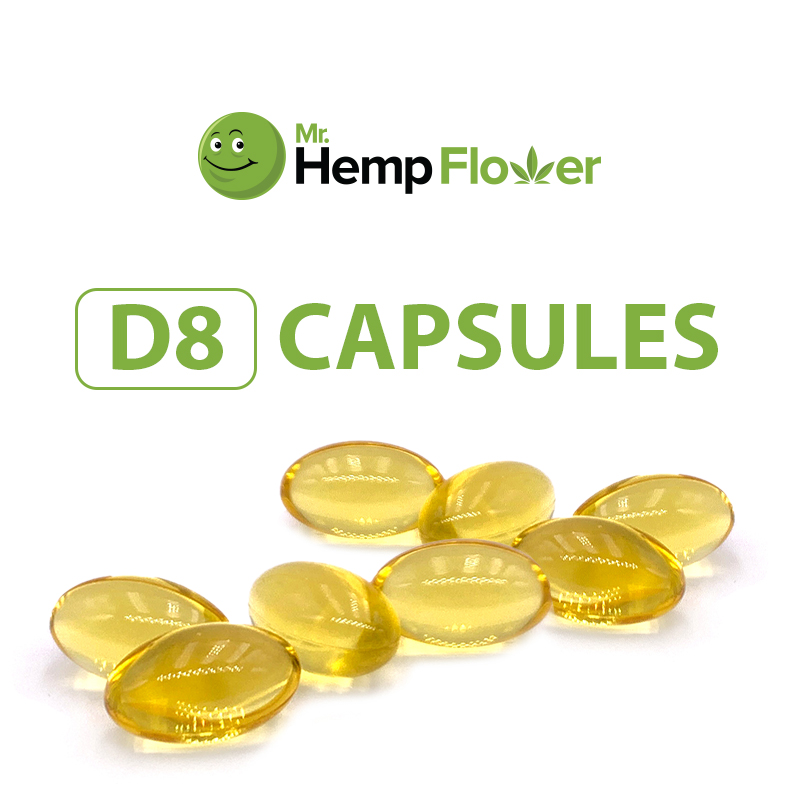
What is Delta 8 THC?
It’s a minor cannabinoid naturally present in the cannabis plant. This compound is an analog of the traditional THC or delta 9 — it has a very similar structure but distinct chemical and biological properties.
What makes these two tetrahydrocannabinols different is a slight variation in the carbon chain. This cannabinoid is twice less potent than delta 9 and doesn’t cause unwanted effects like anxiety and paranoia.
What Does Delta 8 THC Feel Like?
The best way to describe the effects of delta 8 THC is to compare it to delta 9. One of the biggest reasons people avoid using traditional THC is that it causes intense intoxication followed by anxiety and paranoia.
The intoxicating feeling may be pleasant for recreational users looking for something stronger, but to medical marijuana patients or ‘regular’ people who want the benefits of THC without the side effects, getting really intoxicated isn’t the best option.
Delta 8 is different in a way that it entirely removes the uncomfortable side effects of traditional THC. It provides a mellow intoxication that’s incredibly relaxing but leaves the user clear-headed and able to tackle tasks easily. With D8, you will also avoid the irresistible urge to eat but still enjoy appetite stimulation.
Where to Find Good, Safe Delta 8 THC?
This cannabinoid is relatively new to the market, making it challenging to find and recognize products truly worth your money. If you’re buying online, make sure to check out the producer’s website for info on the process of sourcing and creating their products.
At Mr. Hemp Flower, we manufacture our own products from USA-grown, legal hemp. One way to recognize quality, tested products is to look for a QR code or batch number on the packaging that allows you to look up the labs on the producer’s website.
A third-party lab tests our products and the lab results/pesticide report of each product is available on our website. For each of our products, you’ll know the exact amount of THC they contain, and rest assured that the products are clear from any potentially harmful substances.
Premium Delta 8 Products by Mr. Hemp Flower
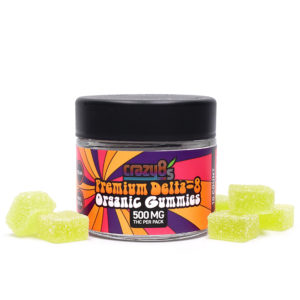
Delta 8 Gummies and Edibles
Our delta 8 THC gummies are the best of the best and guarantee an outstanding experience. Our premium vegan gummies are available in 10mg, 20mg, or 50mg and are made using all-natural and organic ingredients. Unlike other brands on the market, our gummies contain zero animal byproducts, which makes them vegan-friendly. The best part? They’re available in an array of natural flavors, including Green Apple, Passion Fruit, and our personal favorite, Raspberry.
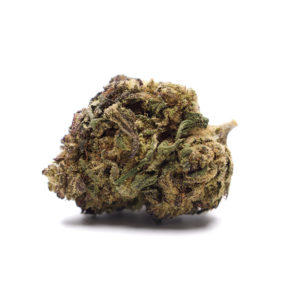
Delta 8 Hemp Flower & Pre-Rolls
Our new line of CBD-rich hemp flower drizzled in delta 8 THC distillate is expanding by the day. So many of our customers absolutely love CBD flower coated in D8 because it has a more potent and relieving effect than CBD flower alone. Let’s not forget about the pre-rolls coated in D8 distillate. If you’re a beginner, these pre-made hemp flower rolls will come in handy.
Is Delta 8 THC Legal in My State?
The legality of delta 8 THC and products containing this cannabinoid varies from state to state. Many states have adopted hemp’s definition as accepted by federal law but fail to differentiate THC derived from marijuana and hemp.
Despite legalizing the hemp plant, some states decided to expressly ban delta 8 THC by including it on the list of controlled substances. But, this compound is legal in most states.
LEGAL STATUS OF DELTA 8 THC BY STATE:
| State | Legal Status | Relevant Bill/Regulation |
|---|---|---|
| Alabama | Legal | SB 66 (2023) |
| Alaska | Illegal | SB 27 (2021) |
| Arizona | Illegal | SB 1098 |
| Arkansas | Legal | Act 269 (Challenged) |
| California | Restricted | AB 45 (2021) |
| Colorado | Illegal | No specific bill |
| Connecticut | Legal | HB 6699 (2023) |
| Delaware | Illegal | SB 266 |
| Florida | Legal | SB 1020 |
| Georgia | Gray Area | No specific regulation |
| Hawaii | Partially Legal | Updated Interim Rules (2022) |
| Idaho | Illegal | HB 126 |
| Illinois | Legal | Illinois Hemp Act |
| Indiana | Gray Area | No specific regulation |
| Iowa | Illegal | Iowa Hemp Act |
| Kansas | Gray Area | Kansas Attorney General’s opinion (2021) |
| Kentucky | Legal | HB 544 (2023) |
| Louisiana | Legal | HB 491 (2019) |
| Maine | Legal | Maine Hemp Regulations |
| Maryland | Legal | SB 778 (2022) |
| Massachusetts | Gray Area | Official Statement |
| Michigan | Illegal | Official Legislation (2021) |
| Minnesota | Legal | HF 3595 |
| Mississippi | Illegal | SB 2725 |
| Missouri | Legal | HB 2034 (2018) |
| Montana | Illegal | HB 948 (2023) |
| Nebraska | Legal | LB 657 (2019) |
| Nevada | Illegal | SB 49 (2021) |
| New Hampshire | Illegal | HB 611 (2023) |
| New Jersey | Legal | New Jersey Hemp Farming Act (2019) |
| New Mexico | Legal | Hemp Manufacturing Act (2019) |
| New York | Illegal | Cannabinoid Hemp Regulations |
| North Carolina | Legal | SB 355 (2022) |
| North Dakota | Illegal | SB 2096 (2023) |
| Ohio | Legal | SB 57 (2019) |
| Oklahoma | Legal | House Bill 2913 (2018) |
| Oregon | Illegal | HB 3000 (2021) |
| Pennsylvania | Unclear | Existing Legislation |
| Rhode Island | Illegal | Hemp Growth Act (2017) |
| South Carolina | Legal | SB 357 (2022) |
| South Dakota | Legal | HB 1008 (2018) |
| Tennessee | Legal | SB 378 (2023) |
| Texas | Legal | HB 1325 (2019) |
| Utah | Illegal | HB 227 (2023) |
| Vermont | Illegal | Vermont AAFM Statement (2021) |
| Virginia | Legal | SB 903 (2023) |
| Washington | Illegal | Washington State Liquor and Cannabis Board |
| West Virginia | Illegal | SB 546 (2023) |
| Wisconsin | Legal | Wisconsin Hemp Legalization (2018) |
| Wyoming | Legal | HB 171 (2023) |
Legality of Delta 8 THC in Every US State
1. Alabama
Hemp-derived delta 8 THC is legal in Alabama under hemp state law and is somewhat regulated under SB 66, enacted in 2023.
This bill restricted the sale, use, and possession of delta 8 THC to individuals 21 and older. The same age restriction applies to delta 10 THC and other hemp-derived psychoactive cannabinoids. Possession of products containing this cannabinoid by individuals under 21 is punishable by a Class B misdemeanor.
Alabama legalized hemp in 2019 under SB 225, which aligned state law with federal law. The bill legalized all hemp-derived cannabinoids and removed hemp THCs from the list of controlled substances.
Read more: Legality of Delta 8 THC in Alabama
2. Alaska
Hemp-derived delta 8 THC is not legal in Alaska because it’s classed as Schedule IIIA controlled substance.
The state legalized hemp and hemp cannabinoids and established a hemp program under SB 6, but this hemp program was unsuccessful. In 2021, the state passed SB 27, which aligned federal with state law.
However, this bill doesn’t exempt hemp tetrahydrocannabinols from the list of controlled substances, although it does remove them from the definition of marijuana. Alaska has passed new regulations (take effect on November 3, 2023) that explicitly prohibit the sale and possession of hemp products containing THC, particularly cannabinoids made from hemp extracts that contain THC.
Read more: Legality of Delta 8 THC in Alaska
3. Arizona
Hemp-derived delta 8 THC is not legal in Arizona because the state classifies all THCs and its isomers as controlled substances. The state established its hemp program under SB 1098, and hemp is a legal crop under Arizona’s Statutes.
However, state law doesn’t exempt hemp THCs from the list of controlled substances, making delta 8 THC illegal. The same applies to cannabinoids like delta 10 THC and THC-O because only delta 9 THC in a concentration of less than 0.3% is permitted in hemp products.
Read more: Legality of Delta 8 THC in Arizona
4. Arkansas
Hemp-derived delta 8 THC is legal in Arkansas.
The state attempted to ban intoxicating cannabinoids derived from hemp, including delta 8 and delta 10 THC, under Act 269, passed in 2023. The bill was challenged by local retailers in court, and the court ruled in favor of the retailers.
Therefore, the enforcement of this bill has been prevented until the case resolves. For now, there’s no explicit ban on delta 8 THC and intoxicating cannabinoids derived from hemp in this state.
Read more: Legality of Delta 8 THC in Arkansas
5. California
Hemp-derived delta 8 THC is strictly regulated and restricted in California under AB 45, enacted in 2021.
This bill excluded cannabinoids produced through chemical synthesis from the definition of hemp. Instead, it included THCa and other naturally derived THC isomers like delta 8, delta 9, and delta 10 THC into the definition of tetrahydrocannabinol.
Therefore, any hemp-derived THC product can contain 0.3% total THC and delta 8 THC is allowed if derived naturally. Marijuana-derived delta 8 THC is legal in California and can be sold in state-licensed dispensaries.
Read more: Legality of Delta 8 THC in California
6. Colorado
Hemp-derived delta 8 THC is not legal in Colorado.
In May 2021, the Colorado Department of Public Health and Environment stated that “chemically modifying or converting any naturally occurring cannabinoids from industrial hemp is non-compliant with the statutory definition of ‘industrial hemp product.’”
This means that commercially sold delta 8 THC products are not in line with the definition of hemp in this state and are illegal. The use of hemp delta 8 THC in food, dietary supplements, and cosmetics is prohibited. This also applies to other THC isomers like delta 10 and THC-O.
Read more: Legality of Delta 8 THC in Colorado
7. Connecticut
Hemp-derived delta 8 THC is legal in Connecticut but strictly regulated.
Under HB 6699 (signed into law in June 2023), all “high THC hemp products” that contain more than 1 mg of total THC per serving or more than 5 mg per container can be sold in state-licensed marijuana dispensaries.
Hemp products are considered legal if the total THC concentration (including delta 8, delta 10, and other isomers) doesn’t exceed 0.3%.
Read more: Legality of Delta 8 THC in Connecticut
8. Delaware
Hemp-derived delta 8 THC is not legal in Delaware because state law doesn’t exempt hemp THCs from its Controlled Substances Act. Delaware legalized hemp under SB 266, which uses the outdated definition of hemp per the 2014 Farm Bill.
The state lists tetrahydrocannabinols under the Schedule I group and prohibits the use of THCs not approved by the FDA. Delaware legalized marijuana in 2023, so delta 8 THC derived from marijuana is legal in this state.
Read more: Legality of Delta 8 THC in Delaware
9. Florida
Hemp-derived delta 8 THC is legal in Florida for adults 21 and older.
Under state law (SB 1020), hemp and hemp-derived cannabinoids are legal in Florida. The state passed SB 1676 in 2023 (effective July 1) to regulate intoxicating hemp cannabinoids, including delta 8 THC. This bill regulated delta 8 THC and made it illegal to sell it to anyone younger than 21. Delta 8 THC derived from marijuana is not legal in Florida.
Read more: Legality of Delta 8 THC in Florida.
10. Georgia
Hemp-derived delta 8 THC products are in a gray legal area in Georgia.
The state hasn’t explicitly banned or restricted the sale, use, and possession of hemp-derived delta 8 THC. There are restrictions on certain products, including adding delta 8 THC to food, beverages, or selling it as a dietary supplement. Other than these restrictions, there are no possession or age limits on delta 8 THC products. Georgia legalized hemp and its cannabinoids in May 2019 under HB 215.
Read more: Legality of Delta 8 THC in Georgia
11. Hawaii
Hemp-derived delta 8 THC made through isomerization or chemical conversion is not legal in Hawaii.
The state updated its Interim Rules in February 2022 and banned the sale of delta 8, delta 10, and other cannabinoids created through isomerization. While naturally derived hemp delta 8 THC is legal in Hawaii, most commercially sold delta 8 products are not. Under state law, inhalable and edible delta 8 THC products are also banned.
Hawaii legalized hemp and its cannabinoids under HB 2689, where it removed hemp from the definition of marijuana and the controlled substances list.
Read more: Legality of Delta 8 THC Hawaii
12. Idaho
The manufacture, sale, possession and use of hemp-derived delta 8 THC is not legal in Idaho.
The state has the strictest hemp laws in the country. Under Idaho’s hemp law (HB 126), hemp-derived products are legal only if they contain zero percent THC (any THC).
The state’s hemp law defines hemp in line with the 2018 Farm Bill but doesn’t exclude hemp THCs from the controlled substances list. So, the presence of any concentration of THC makes the product “marijuana” and not “hemp”. Marijuana-derived delta 8 THC is also strictly prohibited in Idaho.
Read more: Legality of Delta 8 THC in Idaho
13. Illinois
Hemp-derived delta 8 THC is legal in Illinois.
The state hasn’t regulated this cannabinoid, but you can still distribute, sell, use and possess hemp delta 8 THC in Illinois. Illinois legalized hemp under the Illinois Hemp Act, which makes a clear distinction between hemp and marijuana. It also excludes hemp from the state’s controlled substances list.
Currently, there are no possession limits or age restrictions on delta 8 THC products in Illinois, but you may have to be at least 21 years of age to purchase.
Read more: Legality of Delta 8 THC in Illinois
14. Indiana
The legal status of delta 8 THC in Indiana is murky.
The state hasn’t explicitly banned or restricted products containing this compound. However, Attorney General Todd Rokita released a statement in January 2023 claiming that delta 8 THC and “other designer cannabinoid products” are Schedule I substances under Indiana’s law.
The opinion of the AG is not legally binding, and there are no official laws that prohibit the sale, use and possession of hemp-derived delta 8 THC. This means that this cannabinoid is legal in Indiana under Indiana’s Code that legalized hemp and all hemp cannabinoids with a delta 9 THC level of 0.3%.
Read more: Legality of Delta 8 THC in Indiana
15. Iowa
Hemp-derived delta 8 THC is not legal in Iowa.
The state doesn’t explicitly ban hemp-derived delta 8 THC, but there’s no exemption for hemp-derived THCs in the Iowa Controlled Substances Act.
The Iowa Hemp Act states that hemp products can contain less than 0.3% THC on a dry weight basis without specifying delta 9 THC. This means that the total THC concentration of a delta 8 product derived from hemp must not exceed 0.3%, making most commercially available products illegal. Smokable hemp products are also prohibited in this state.
Read more: Legality of Delta 8 THC in Iowa
16. Kansas
Hemp-derived delta 8 THC is in a legal gray area in Kansas.
The state hasn’t explicitly banned the sale, use and possession of products containing this cannabinoid. However, some interpretations of state law may indicate a few restrictions.
According to an opinion released by the Kansas Attorney General in 2021, delta 8 THC products are illegal in this state unless they are made from hemp and contain less than 0.3% total THC.
This means that delta 8 THC is legal in this state but can only be sold in minuscule concentrations that don’t exceed 0.3% total THC. As a result, most commercially sold delta 8 THC hemp products are illegal in this state.
Read more: Legality of Delta 8 THC in Kansas
17. Kentucky
Hemp-derived delta 8 THC is legal and regulated in Kentucky.
Under HB 544, passed in March 2023, hemp-derived delta 8 THC products derived from hemp are fully legal in Kentucky. The bill regulated the manufacture and sale of intoxicating hemp products that are now legal to sell only to persons 21 and older.
In retail stores, intoxicating products like delta 8 THC must be kept behind a counter. These products must be tested by a third-party lab and come in a more plain packaging that’s not attractive to children.
These regulations that support the sale and use of delta 8 THC products came after a legal dispute between the Department of Agriculture and the Kentucky Hemp Association. On their official website, the Department of Agriculture stated that delta 8 THC was a controlled substance. To prove the opposite, the Hemp Association filed a lawsuit and won in court.
Read more: Legality of Delta 8 THC in Kentucky
18. Louisiana
Hemp-derived delta 8 THC is legal in Louisiana.
Products infused with this cannabinoid can be sold to adults aged 21 and over. To be considered lawful, delta 8 THC products must contain less than 8 mg of combined THC per serving. Louisiana prohibits some hemp products, including pre-rolls, cigarettes, and vapes.
The state legalized hemp under HB 491 in 2019, authorizing the sale of hemp-derived products with less than 0.3% THC.
Read more: Legality of Delta 8 THC in Louisiana
19. Maine
Hemp-derived delta 8 THC is legal in Maine.
The state doesn’t explicitly prohibit the sale, use and possession of products containing this cannabinoid.
Maine legalized hemp shortly after the Farm Bill and allowed the sale of hemp-derived products with less than 0.3% delta 9 THC. It also removed hemp and hemp THCs from the definition of marijuana and the list of controlled substances. You can buy marijuana-derived delta 8 THC in Maine because the state legalized recreational marijuana.
Read more: Legality of Delta 8 THC in Maine
20. Maryland
Hemp-derived delta 8 THC is legal in Maryland.
In July 2022, Maryland enacted SB 778, which regulated delta 8 and delta 10 THC. The bill restricted the sale and possession of products containing these cannabinoids to adults 21 and over. Under state law, tetrahydrocannabinols derived from hemp are legal, while THCs derived from marijuana are illegal.
Read more: Legality of Delta 8 THC in Maryland
21. Massachusetts
Hemp-derived delta 8 THC is in a legal gray area in Massachusetts.
The state doesn’t explicitly prohibit the sale, use and possession of this cannabinoid if derived from hemp. But, according to an official statement from the Massachusetts Department of Agricultural Resources, delta 8 THC is not a legal substance in the state if made synthetically from hemp CBD.
The Department of Agricultural Resources has authority over hemp-derived products, which makes them potentially illegal despite unofficial legislation. This means that delta 8 THC products may not be legally sold in Massachusetts.
Read more: Legality of Delta 8 THC in Massachusetts
22. Michigan
Hemp-derived delta 8 THC is not legal in Michigan, but marijuana-derived delta 8 THC is.
Michigan regulates the sale, use and possession of delta 8 THC as part of its marijuana program. Also, delta 8 must be sold in licensed marijuana dispensaries and must be derived from marijuana and not from hemp.
The sale of hemp delta 8 THC is not permitted in this state. Governor Whitmer signed the official legislation package that restricted the sale of delta 8 to marijuana dispensaries in October 2021. These products are part of the state’s adult-use cannabis market and are available for adults 21 and older.
The Michigan Cannabis Regulatory Agency (CRA) regulates cannabis products with high THC content. In this state, hemp products must not contain less than 0.3% total THC by dry weight.
Read more: Legality of Delta 8 THC in Michigan
23. Minnesota
Hemp-derived delta 8 THC is legal in Minnesota, but it’s regulated under HF 3595.
HF 3595 regulated delta 8 THC by limiting the amount of THC in a hemp product. Therefore, legal hemp products must not contain less than 0.3% total THC, which includes delta 9, delta 8, and delta 10 THC. Artificial cannabinoids like THC-O and THCp are prohibited in this state.
Edible delta 8 THC products are legal in this state if they contain up to 5 mg of total THC per serving and 50 mg per package.
Read more: Legality of Delta 8 THC in Minnesota
24. Mississippi
Hemp-derived delta 8 THC is not legal in Mississippi.
Under state law, delta 8 THC is a controlled substance. Passed in 2020, SB 2725 removed hemp from the definition of marijuana but didn’t exempt hemp products that are unapproved by the FDA. This means that these products fall under the state’s controlled substances list.
Read more: Legality of Delta 8 THC in Mississippi
25. Missouri
Hemp-derived delta 8 THC is legal in Missouri.
The state passed HB 2034 in 2018, which legalized hemp and hemp-derived products. The law excludes hemp and hemp THCs from the list of controlled substances, which makes delta 8 THC legal in Missouri.
Read more: Legality of Delta 8 THC in Missouri
26. Montana
Hemp-derived delta 8 THC is not legal in Montana.
The state considers all THCs controlled substances, regardless if derived from hemp or marijuana. In 2023, Montana passed HB 948, which prohibits the sale, use and possession of synthetically derived cannabinoids, including delta 8, delta 10 THC, THC-O, and HHC.
Read more: Legality of Delta 8 THC in Montana
27. Nebraska
Hemp-derived delta 8 THC is legal in Nebraska.
The state legalized hemp under LB 657, or the Nebraska Hemp Farming Act, in 2019. Under this bill, hemp and hemp-derived products are legal in the state and not considered controlled substances. As long as the delta 8 THC product contains less than 0.3% delta 9 THC, it’s legal in Nebraska. The state prohibits adding cannabinoids to food, which also applies to delta 8 THC.
Read more: Legality of Delta 8 THC in Nebraska
28. Nevada
Synthetically derived delta 8 THC from hemp is illegal in Nevada.
The state banned all synthetic cannabinoids, including delta 8 THC, in June 2021 under SB 49. This bill also amended the 0.3% concentration in hemp products to be calculated as the total amount of THC.
Read more: Legality of Delta 8 THC in Nevada
29. New Hampshire
Hemp-derived delta 8 THC products are prohibited in New Hampshire if their THC concentration exceeds 0.3%.
Effective October 2023, HB 611 prohibits the sale, use and possession of hemp-derived products with a total THC concentration over 0.3%. This includes delta 8, delta 9, and other THC isomers. This makes most commercially sold delta 8 THC products illegal in New Hampshire.
Read more: Legality of Delta 8 THC in New Hampshire
30. New Jersey
Hemp-derived delta 8 THC is legal in New Jersey.
The state enacted the New Jersey Hemp Farming Act in 2019, which removed hemp from the list of controlled substances. New Jersey doesn’t explicitly prohibit the sale, use and possession of hemp-derived delta 8 THC, so it falls under the state’s hemp regulations.
Read more: Legality of Delta 8 THC in New Jersey
31. New Mexico
Hemp-derived delta 8 THC is legal in New Mexico.
The state enacted HB 581, or the Hemp Manufacturing Act in 2019, which removed hemp and hemp THCs from the state list of controlled substances. New Mexico doesn’t explicitly prohibit the sale, use and possession of hemp-derived delta 8 THC, so it falls under the state’s hemp regulations.
Read more: Legality of Delta 8 THC in New Mexico
32. New York
Artificially derived delta 8 THC is banned in New York, regardless if derived from hemp or marijuana.
The state prohibited the sale of delta 8 THC made through isomerization under the Cannabinoid Hemp Regulations. This applies to any cannabinoid made “artificially,” including delta 10 and other THC isomers. Therefore, hemp-derived delta 8 THC products available commercially are illegal in New York. Marijuana-derived delta 8 THC can be legally sold in this state.
Read more: Legality of Delta 8 THC in New York
33. North Carolina
Hemp-derived delta 8 THC is legal in North Carolina.
The state enacted SB 355 in 2022, which aligned hemp laws with federal law and removed the crop from the state list of controlled substances. North Carolina doesn’t explicitly prohibit the sale, use and possession of hemp-derived delta 8 THC, so it falls under the state’s hemp regulations.
Read more: Legality of Delta 8 THC in North Carolina
34. North Dakota
Hemp-derived delta 8 THC is not legal in North Dakota following the enactment of SB 2096.
The state banned delta 8 THC under SB 2096, enacted in 2023. This bill excludes all delta 8 THC products from the definition of hemp, regardless if derived naturally from the plant or through isomerization. This applies to other THC isomers, including delta 10, HHC, THC-O, and THCp. Therefore, if a product contains delta 8 THC, it’s not a legal substance in North Dakota.
Read more: Legality of Delta 8 THC in North Dakota
35. Ohio
Hemp-derived delta 8 THC is legal in Ohio.
The state enacted SB 57 in July 2019, which legalized hemp and removed hemp THCs from the state list of controlled substances. Ohio doesn’t explicitly prohibit the sale, use and possession of hemp-derived delta 8 THC, so it falls under the state’s hemp regulations.
Read more: Legality of Delta 8 THC in Ohio
36. Oklahoma
Hemp-derived delta 8 THC is legal in Oklahoma.
The state updated its hemp laws after the Farm Bill. House Bill 2913 legalized hemp and removed hemp THCs from the state list of controlled substances. Oklahoma doesn’t explicitly prohibit the sale, use and possession of hemp-derived delta 8 THC, so it falls under the state’s hemp regulations.
Read more: Legality of Delta 8 THC in Oklahoma
37. Oregon
Hemp-derived delta 8 THC is illegal in Oregon.
Governor Kate Brown signed HB 3000 on July 19, 2021, which created a new category of “adult-use cannabinoids,” such as delta 8, delta 9 THC, and any intoxicating cannabinoid.
The bill prohibits the manufacture, sale, use and possession of any product containing artificially derived cannabinoids. The definition of “artificially derived” matches the delta 8 THC contained in most commercially sold products, which makes them illegal. The bill bans the sale of high-THC products to minors.
Read more: Legality of Delta 8 THC in Oregon
38. Pennsylvania
Hemp-derived delta 8 THC is not explicitly banned in Pennsylvania, so its legal status is unclear.
The state legalized hemp in 2016 (HB 967), but since then, there’s been no other hemp bill that would align state with federal law or the 2018 Farm Bill. As a result, the state hasn’t amended its controlled substances list to exclude hemp THCs from the definition of marijuana.
The collision between these legal provisions that make delta 8 illegal on one side and legal if derived from hemp on the other, make its status unclear.
Read more: Legality of Delta 8 THC in Pennsylvania
39. Rhode Island
Hemp-derived delta 8 THC is illegal in Rhode Island.
The state legalized hemp under the Hemp Growth Act, enacted in 2017, but didn’t remove hemp THCs from the list of controlled substances. The state legalized marijuana for recreational purposes, so marijuana-derived delta 8 may be legal under state law.
Read more: Legality of Delta 8 THC in Rhode Island
40. South Carolina
Hemp-derived delta 8 THC is legal in South Carolina.
The state legalized hemp in line with the Farm Bill of 2018 under its Hemp Farming Act (H3449). This bill makes a clear distinction between hemp and marijuana and exempts hemp THCs from the list of controlled substances.
However, the legal status of this cannabinoid is complicated thanks to a statement issued by the South Carolina Attorney General (AG). In it, the AG claims that delta 8 THC is not exempt from the controlled substances list despite state law stating the opposite. Although this opinion is not legally binding, it has to be resolved because it causes confusion with law enforcement.
Read more: Legality of Delta 8 THC in South Carolina
41. South Dakota
Hemp-derived delta 8 THC is legal in South Dakota for adults 21 and over.
The state legalized hemp under HB 1008 after the 2018 Farm Bill. This bill removed hemp and hemp THCs from the list of controlled substances and legalized delta 8 THC derived from this crop. In 2022, the state passed HB 1292, which limited sales of delta 8 THC products to adults aged 21 and over.
Read more: Legality of Delta 8 THC in South Dakota
42. Tennessee
Hemp-derived delta 8 THC is legal in Tennessee for adults 21 and over.
The state legalized hemp and hemp cannabinoids under SB 357, which exempted hemp from the list of controlled substances. In 2023, Tennessee passed SB 378, which classified delta 8 THC and other hemp-derived intoxicating cannabinoids as hemp. In addition, the bill established rules for testing and packaging. It also set an age limit and restricted the sale of delta 8 THC to adults 21 and older.
Read more: Legality of Delta 8 THC in Tennessee
43. Texas
Hemp-derived delta 8 THC is legal in Texas.
The state legalized hemp and its cannabinoids after the 2018 Farm Bill under HB 1325. It also amended its controlled substances list to exempt hemp THCs from the list of controlled substances.
Despite state law being in favor of delta 8 THC, this cannabinoid remains legal in Texas after it survived a court battle between the Texas Department of State Health Services (DSHS) and a delta 8 vendor. The vendor sued the DSHS for stating that delta 8 THC derived from hemp is illegal in Texas but won in court.
Read more: Legality of Delta 8 THC in Texas
44. Utah
Hemp-derived delta 8 THC is not legal in Utah.
State law classifies this cannabinoid as a Schedule I controlled substance. In 2023, Utah signed HB 227 into law, which created a category of “artificially derived cannabinoids,” which includes delta 8 THC products. Therefore, it’s illegal to sell products containing this cannabinoid in Utah.
Read more: Legality of Delta 8 THC in Utah
45. Vermont
Hemp-derived delta 8 THC is illegal in Vermont.
The state’s Agency of Agriculture, Farms, and Markets (AAFM) released a statement in April 2021 that specified that the manufacture, possession, and sale of delta 8 THC is illegal under state law because the component is “not naturally occurring.” The state also prohibits the use of artificially made THCs in adult-use cannabis products.
Read more: Legality of Delta 8 THC in Vermont
46. Virginia
Hemp-derived delta 8 THC is legal in Virginia but must be sold under specific requirements.
Under SB 903, enacted in July 2023, hemp products are legal if they contain 2 mg of any THC per package. This is a very low amount of THC, which makes commercially sold delta 8 THC products illegal in this state.
Read more: Legality of Delta 8 THC in Virginia
47. Washington
Hemp-derived delta 8 THC is illegal in Washington.
The state considers chemically altered delta 8 THC products a controlled substance, according to the Washington State Liquor and Cannabis Board. Naturally derived delta 8 THC from hemp is legal in this state. Washington also prohibits the sale, possession and use of delta 10, HHC, and other THC isomers that have been “chemically altered.”
Read more: Legality of Delta 8 THC in Washington
48. West Virginia
Hemp-derived delta 8 THC is illegal in West Virginia under SB 546.
In 2023, West Virginia passed SB 546, which added delta 8 THC and all THC isomers to the group of Schedule I substances. Naturally occurring delta 8 THC that hasn’t been “contaminated” is legal in this state under SB 220, also passed in 2023. This makes almost every delta 8 THC product commercially sold on the market illegal in West Virginia.
Read more: Legality of Delta 8 THC in West Virginia
49. Wisconsin
Hemp-derived delta 8 THC is legal in Wisconsin.
The state hasn’t explicitly banned the sale, use and possession of delta 8 THC. Wisconsin legalized hemp soon after the 2018 Farm Bill and excluded hemp THCs from the list of controlled substances. This makes delta 8 THC a legal cannabinoid in this state.
Read more: Legality of Delta 8 THC in Wisconsin
50. Wyoming
Hemp-derived delta 8 THC is legal in Wyoming for people aged 18 and over.
Under HB 171, Wyoming legalized hemp and its cannabinoids and exempted hemp products from the list of controlled substances. In 2023, state legislators passed HB 108, which restricted vaping and edible THC products to people 18 and over.
Read more: Legality of Delta 8 THC in Wyoming
See What Others Are Saying About Delta-8
Bubba Kush Delta 8 is my new favorite!
Frosted Lime Delta 8 is a great product.
My favorite flower that I’ve order so far. Its effects are very relaxing. Great for winding down at the end of a busy day. Will definitely order again.
Derrick C.
Is Delta 8 THC Legal Federally?
Under federal law, all hemp-derived cannabinoids, including D8, fall within the definition of hemp under the 2018 Farm Bill. However, uncertainties remain regarding the nationwide legality of this cannabinoid because it’s a derivative of another hemp-derived cannabinoid: CBD.
Most D8 offered by hemp producers on the market is made from cannabidiol (CBD). Delta 8 THC is not present in sufficient amounts in the hemp plant, which is why producers use isomerization (chemical conversion) to create it. This process of converting CBD into D8 is the source of confusion.
DEA’s Interim Rule
In August 2020, the Drug Enforcement Administration (DEA) released its Interim Rule, stating that “all synthetically derived tetrahydrocannabinols remain scheduled I controlled substances.” Despite the broad definition of “synthetically derived,” this rule might mean that the DEA would treat D8 that’s converted from hemp-derived CBD as a “synthetically derived THC.”
The DEA’s Rule states that the 2018 Farm Bill doesn’t impact the control status of synthetically derived tetrahydrocannabinols. It further clarifies that the definition of “hemp” is limited to materials derived from Cannabis sativa L.
The argument here that stands in defense of isomerized delta 8 is that this compound is not a “man-made” chemical. Isomerization is simply a process of converting one hemp-derived compound into another. Science agrees that “synthetically derived” cannabinoids are made without using the hemp plant and its compounds during the process. Synthetic cannabinoids like K2 and Spice are made in labs to mimic the biological effects of THC.
Another argument regarding delta 8’s legality is that this compound is a tetrahydrocannabinol that gets the person intoxicated. With the 2018 Farm Bill that legalized hemp, legislators intended to provide an additional crop for farmers to grow — as long as the crop and the final produce are non-intoxicating. Therefore, cannabis varieties and tetrahydrocannabinol were already excluded from hemp.
This creates a loophole because, in most states, hemp-derived products are legal as long as they contain less than 0.3% delta 9 THC. The DEA Rule also excludes hemp and hemp material from the definition of tetrahydrocannabinols. This means that if this compound is derived from hemp and contains less than 0.3% delta 9 THC, it’s legal and in line with the Farm Bill.
What Does the Future Hold For Delta 8 THC?
The never-ending saga of delta 8 THC’s legality is far from over. As we gear up for the 2023 Farm Bill, the situation is getting murkier, thanks to the DEA’s ominous signals about potentially criminalizing delta 8.
The likelihood of stricter federal regulations supporting the DEA’s stance stands. The 2018 Farm Bill might see some retroactive tweaks, and Congress could propose new rules to limit synthetic THC in hemp products.
In the meantime, states are pushing for restrictions while state enforcement agencies are struggling to keep up.
While the 2018 Farm Bill opened the door for the thriving hemp industry, the upcoming 2023 Farm Bill may slam it shut or leave it ajar. Whether you’re pro or against Delta-8, the ongoing battle over its legality, driven by vague congressional intent and flawed definitions, needs to end. We need straightforward rules, once and for all.
Can I Get Delta 8 in The Mail?
Absolutely, but it depends on the state you live in. Some states decided to ban products containing this cannabinoid, which is why many companies stay away from shipping into states where legality is hazy.
Delta 8 THC and The Entourage Effect
Research shows that regular THC greatly contributes to the entourage or ensemble effect and works better when combined with other compounds rather than as an isolated molecule. Such enhancement can create preferable benefits that D8 may also mediate. But, we need more research on how this cannabinoid interacts with other cannabinoids.
Final Thoughts
Delta 8 THC is a real cannabinoid naturally found in the hemp plant, not a lab-created substance that’s been chemically altered to mimic the effects of the organic substance.
The laws on D8 are constantly changing, so make sure to check state laws before purchasing products containing this cannabinoid.
Frequently Asked Questions
Will Delta-8 Get You High?
Yes, D8 will give a mellow high, not as intense as Delta-9’s. Many people prefer it over Delta-9 because it’s half the potency without the negative effect of anxiety and paranoia.
Delta-8 vs. Delta-9 THC: What’s the Difference?
Molecularly, these two compounds are very similar. Both molecules have a double bond in their structure, placed in a different spot. The double bond is thought to produce the intoxicating effects that make the person feel stoned. This seemingly insignificant difference also makes D8 much less potent than Delta-9.
How Does Delta-8 THC Work With The Endocannabinoid System?
Due to its nearly identical chemical structure to THC, Delta-8 also binds to the CB1 receptors located in the central nervous system. The CB1 receptor, when stimulated by THC, causes the “high” feeling. This compound also has an affinity for CB2 receptors, but its binding affinity should be explored further.
How Is Delta-8 Made?
The most common method of making Delta-8 is by extracting, isolating, and synthesizing hemp-derived CBD into Delta-8. This cannabinoid is present in trace amounts in the hemp plant, so it’s often converted from CBD.
How to Dose?
If you’re new to CBD or any hemp compound, Delta-8 will probably have a stronger effect on you than if you’re a regular consumer. Standard Delta-8 products contain twice the strength of standard Delta-9 THC products. As a rule of thumb, start with the lowest dose and increase. If vaping or smoking it, you should feel the effects within ten minutes or less.
Read our legal disclaimer HERE. While we try to stay as up to date as possible on all state laws, you should do your own due diligence and work with a legal professional to ensure you are operating legally in your state or territory at all times.

